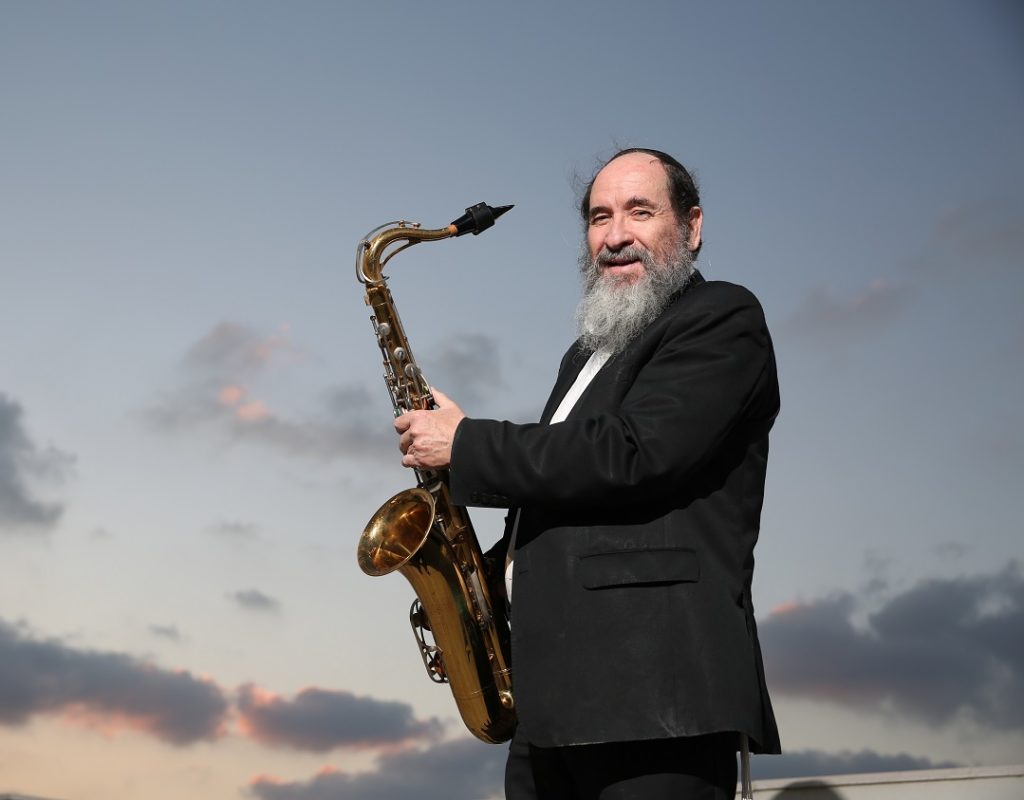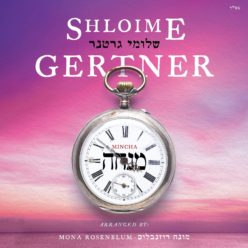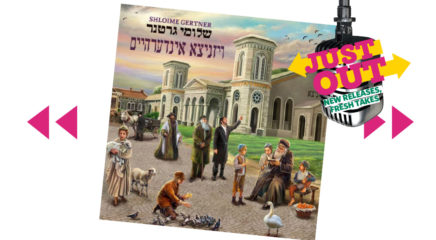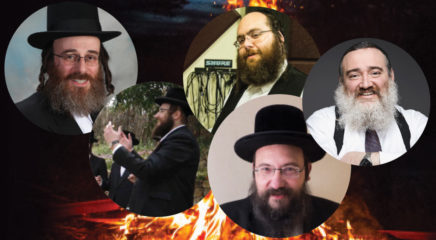Prayer of Privilege
Nine years ago Mona Rosenblum was walking out of a Bnei Brak shul after Minchah when he picked up a flier with a story that shook him up.
The story was about an encounter with Rav Yaakov Kamenetsky ztz”l and an elderly Russian Jew who managed to get an exit visa from the Soviet Union several years before the Iron Curtain came down. The man entered Rav Yaakov’s beis medrash and stood in the doorway. The Rosh Yeshivah asked if he needed help with anything. He declined. The Rosh Yeshivah then asked if he could show him how to daven from the siddur.
“No ” he said.
“Maybe you would like to say a particular pasuk?” Rav Yaakov enquired further.
“No.”
“Perhaps you know Shema Yisrael and you would like to recite it in shul?”
“No I don’t.”
“Are you Jewish?” Rav Yaakov asked.
A vehement “Da da.”
“Did you learn in cheder as a child?”
The man replied that he had learned in a cheder for a short time but it was 70 years ago — he didn’t remember a thing not even the Shema. Then he said “Rabbi actually I do know one pasuk: ‘Tachas asher lo avadeta es Hashem Elokecha besimchah u’vetuv levav merov kol — because you did not serve Hashem your G-d with joy and gladness of heart when everything was in abundance. (Devarim 28:47)’ ”
And then he explained. “I don’t remember this pasuk from cheder. I remember it from the Nazi death camps. There was a Jew there whom the Nazis forced to carry a tremendous weight up and down an incline. We musselmen weighed about 30 kilo then and the load must have been 50 kilo. Whenever he passed me he was murmuring to himself ‘Tachas asher lo avadeta es Hashem Elokecha besimchah….’ I must have heard it hundreds of times.”
“Maybe you remember this Jew’s name?” Rav Yaakov asked.
“Everybody called him the Klausenburger Rav.”
“The story hit me hard ” Mona says. “The Rebbe lost his wife and 11 children at the beginning of the Holocaust. Even as he was tortured he understood that all suffering has a purpose. I’m a child of Holocaust survivors myself and I was so moved that I composed a song immediately afterward with those words: ‘Tachas asher lo avadeta…’ and it continued ‘Is fardem ivdu es Hashem besimchah — therefore serve Hashem with joy.’ ”
Mona sang the song at a siyum his son made and the bochurim enjoyed it. Then he told his chavrusa Rav Eliezer Schwab about the song. The next day Rav Eliezer told Mona that he’d sung it to his elderly father who had disapproved. “His father said ‘Es past nisht. You can’t sing words from the tochachah. And noch a happy song?’ I heard his point and the song went into a drawer.”
A while later Mona traveled to Europe with the Boyaner Rebbe and a group of chassidim. They toured Mauthausen and the infamous “Stairs of Death.”
“There were 186 steep steps each roughly ten centimeters wide. Just enough space for the heel of a person’s foot. The steps lead down to the quarry where the prisoners were forced to chisel out blocks and then carry the massive hewn stones up the staircase one behind the other. Many exhausted prisoners collapsed in front of the prisoners behind them creating a domino effect of death all the way to the bottom. And a favorite Nazi sport was to push the person who actually reached the top of that staircase sending all those below to their deaths at the bottom.”
On the way back to the bus Mona remembered another story about the Klausenburger Rebbe from the sefer Lapid Ha’eish. The author relates that during hard labor in a slave labor battalion sent back to the ghetto a Jew approached the Rebbe and asked him if he would still recite the brachah “Ata Bechartanu — You have chosen us from all the nations” on an upcoming Yom Tov.
The Rebbe answered “I haven’t said ‘Atah Bechartanu’ with the proper kavanah until now. Now I will have even more kavanah and rejoicing. Because if not for the fact that HaKadosh Baruch Hu chose us from all the nations I would be like them. And it’s better to be in this terrible situation than to be like them chas v’chalilah.”
The memory of that story combined with the horrible images of mesirus nefesh inspired Mona right away on the bus when “a song just came down ” a leibedig chorus of “Shelo Asani Goy.” The song stashed away in his drawer also came to mind. If he couldn’t use the Klausenburger Rebbe’s other wartime motto perhaps he could use this. The change from “Tachas asher lo avadeta” to “Shelo asani goy” was made and the refrain “Is fardem ivdu es Hashem besimchah” remained. Shloimy Gertner’s warm voice and hartzige delivery completed the package. You can hear it on his recent album Mincha (which was arranged by none other than Mona).
(Originally featured in Mishpacha Issue 693)






